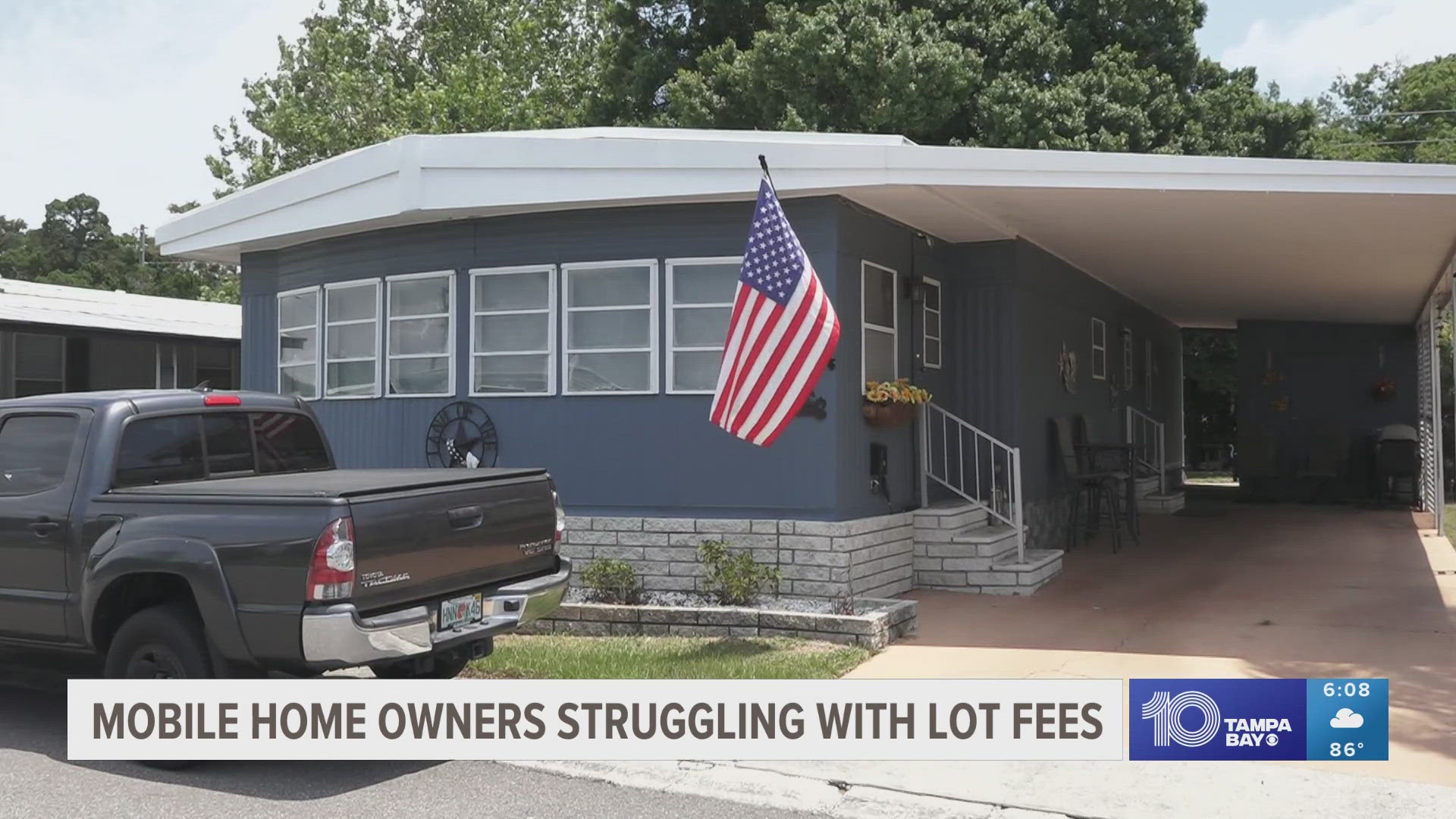SAFETY HARBOR, Fla. — Owners of manufactured homes reached out to 10 Tampa Bay over a dramatic rise in the monthly cost of the lot lease prices.
The increase hits these homeowners especially hard because most people are paying a mortgage on the home on top of the monthly lease they pay to the park for the land. A home is supposed to be an asset but for these homeowners, it's quickly becoming a burden.
Sonia Hass and her husband live at Amber Glades in Safety Harbor but she doesn't know if they'll be able to keep affording the land beneath their home.
“The greed is just insane,” she says. “They have no concern for the people that live in their parks.
This year, park owners proposed a $100 increase to her nearly $900-a-month lot lease. Park owners can raise rates if they match the Consumer Price Index. Inflation has given license to raise lease prices as much as the market will bear.
“Now people have to decide well, ‘do I take that off of my food?’” she says. “’Or do I take that off of my prescriptions?’”
Legislation passed this year will help owners fight back against high markups by making the Florida Department of Business and Professional Regulation offer lists of mediators who negotiate disputes but are hard to find.
“We can then ask for a list of additional mediators that will allow us to negotiate with [park owners] on a price for mediation,” Rick Hollenbach, the president of the Federation of Manufactured Home Owners of Florida, said. “We're finding people are spending $1,500 sometimes.”
Meantime Sonia and her husband, both in their mid-sixties, say they won't be able to retire anytime soon.
“For the people who have no choice but to try to sell their homes, they can't sell the homes because nobody wants to pay that high lot fee,” she says.
While legislation to make mediators more available is a start, owners 10 Tampa Bay talked to said there should be help to afford the cost of attorneys and mediators for owners to challenge price increases.
A new Zillow study reveals that for the past five years, Tampa has had the highest disparity between rent increases and wage growth in the nation.

